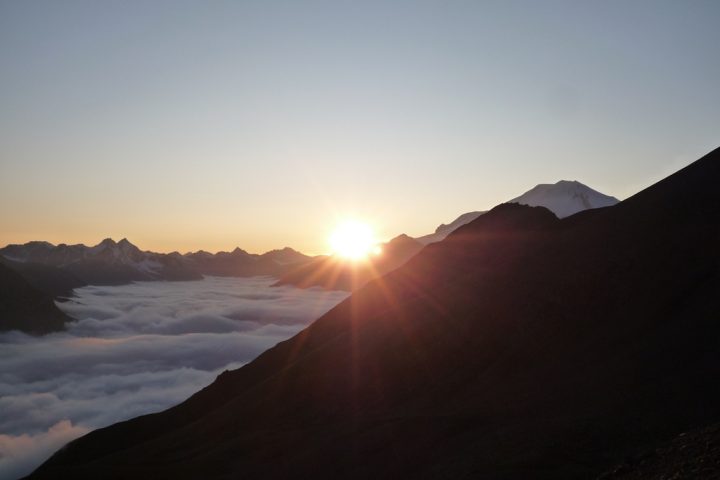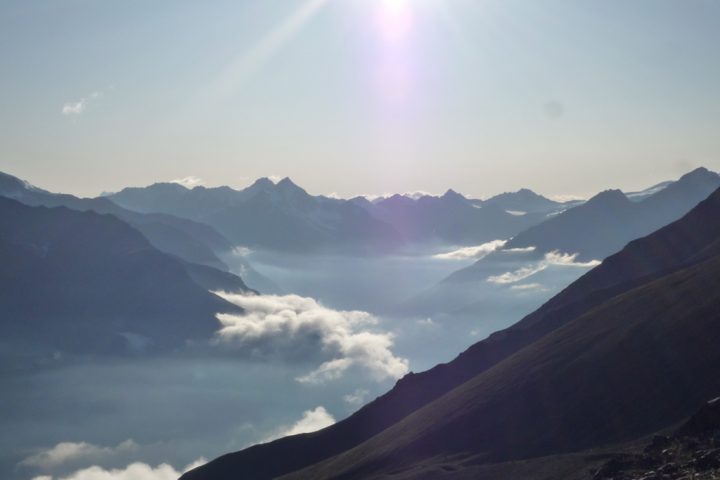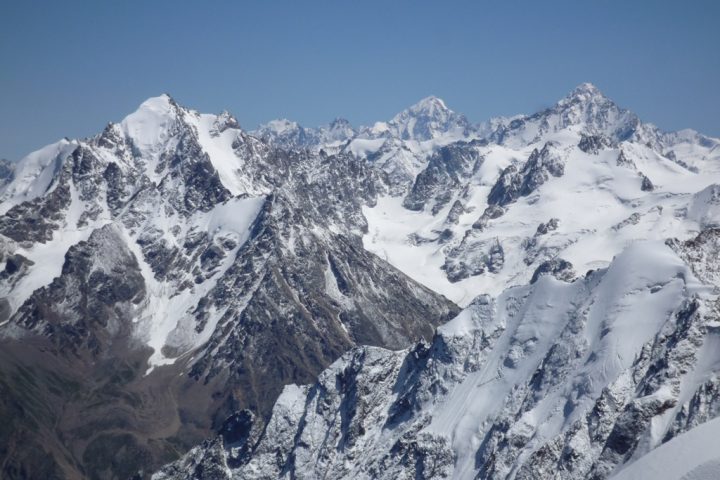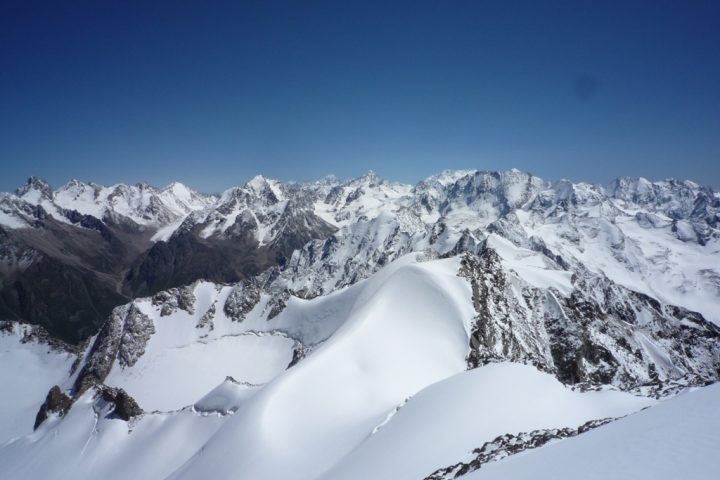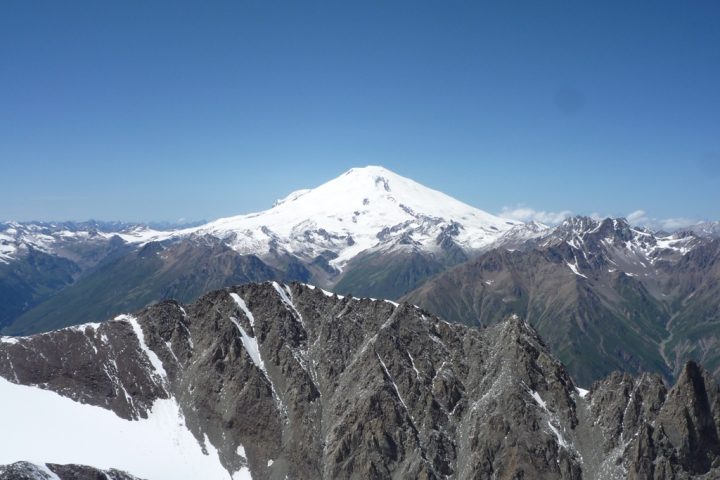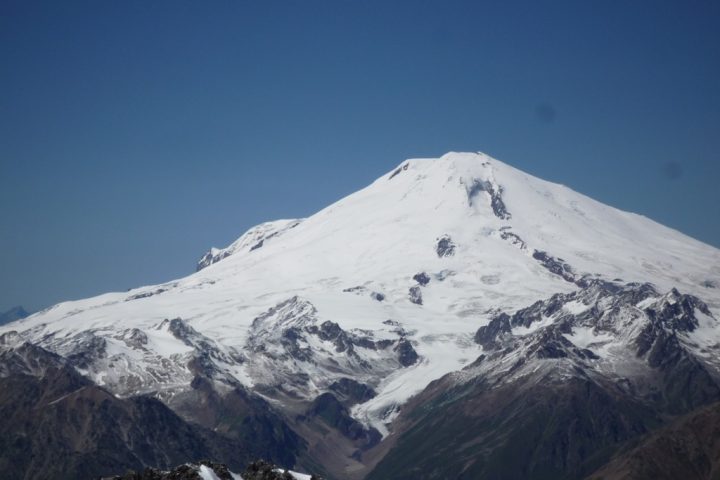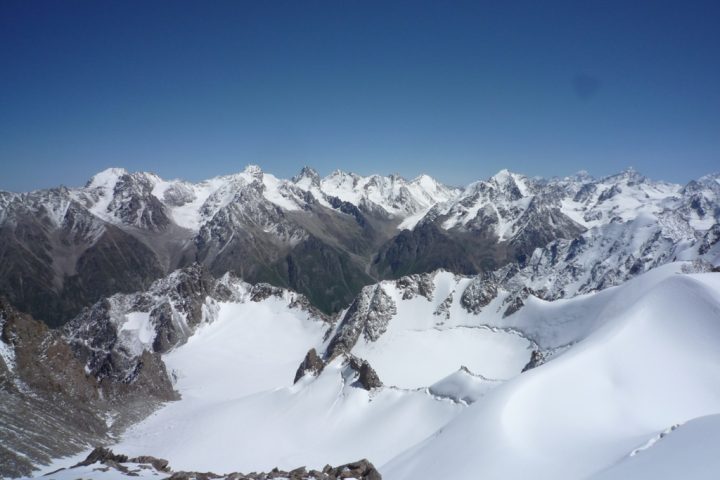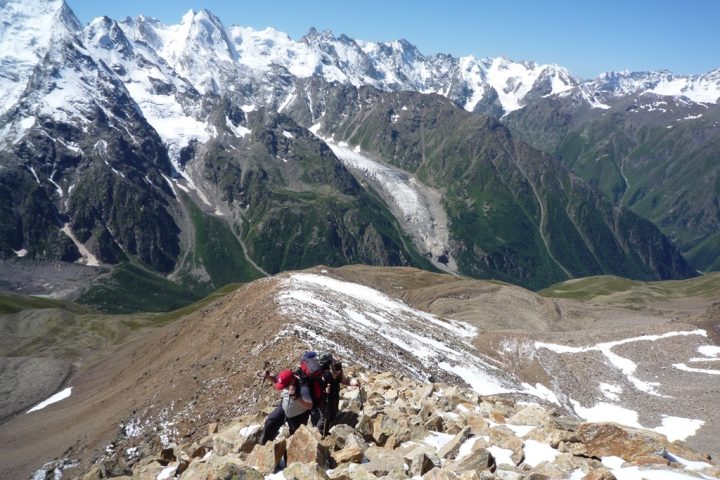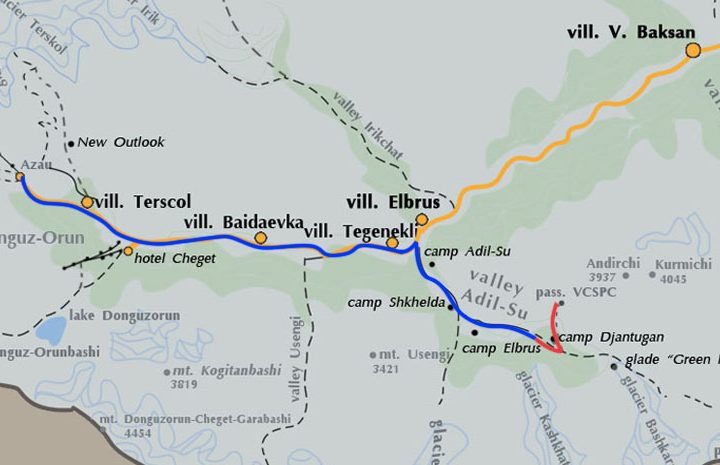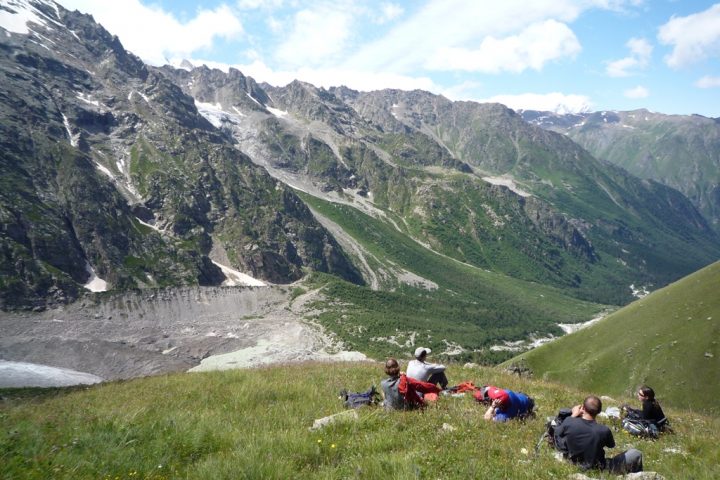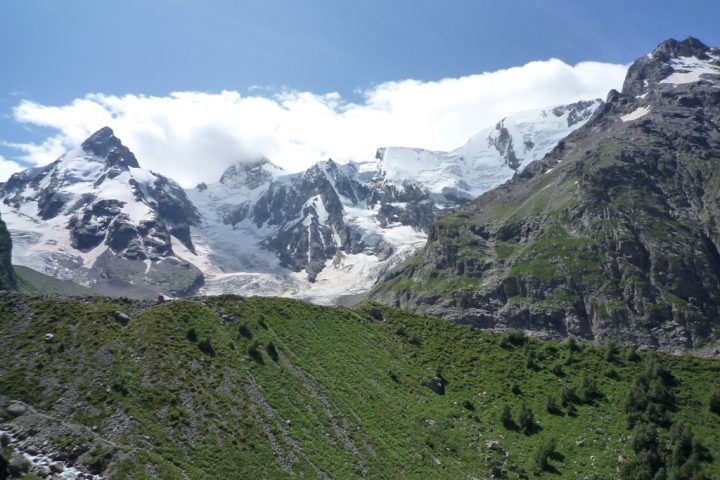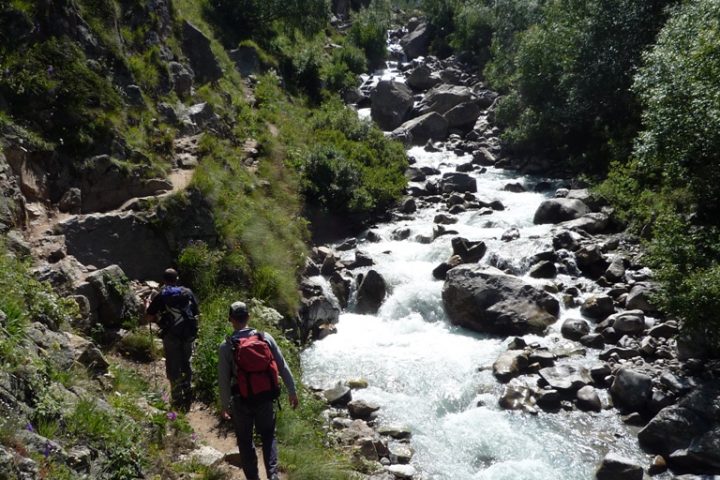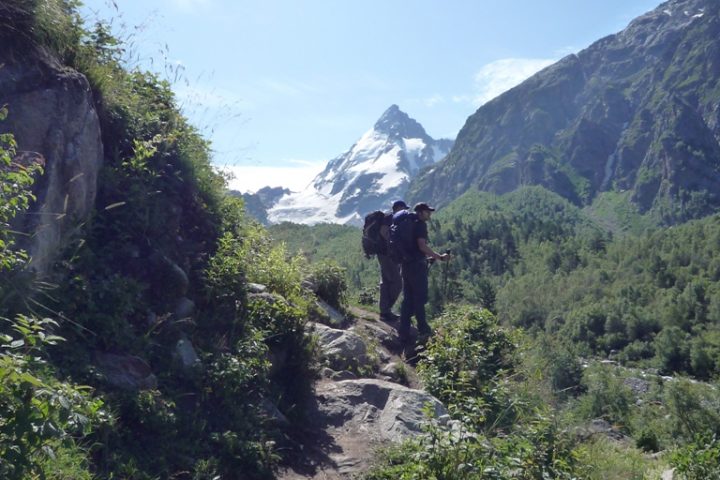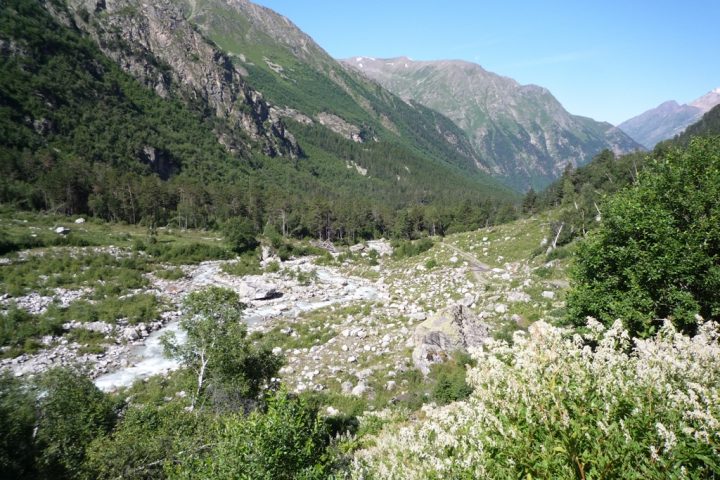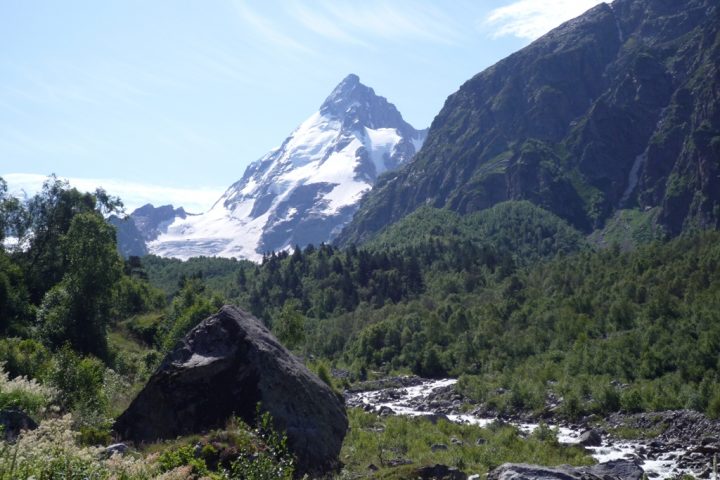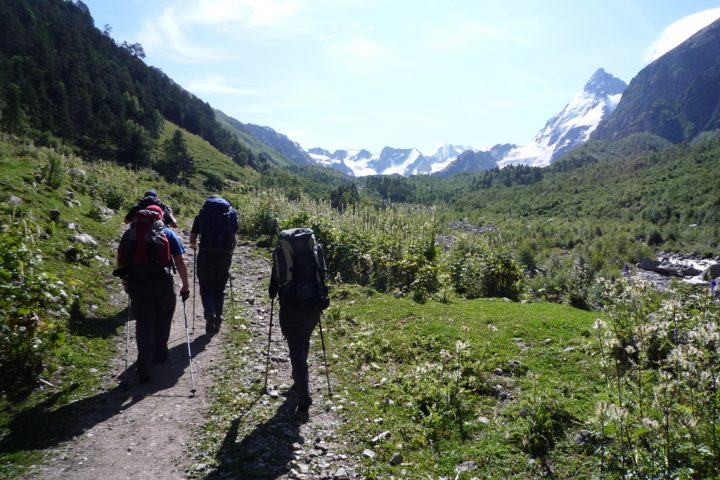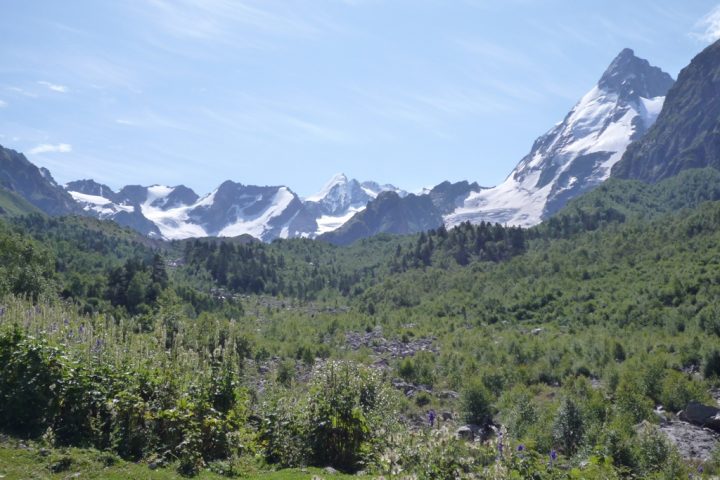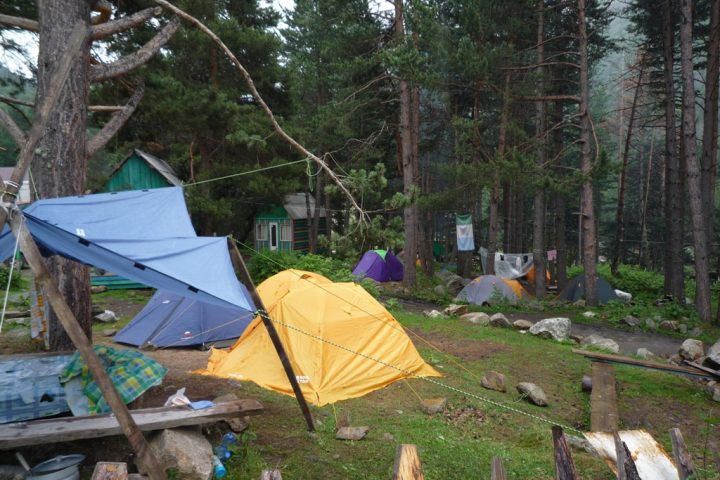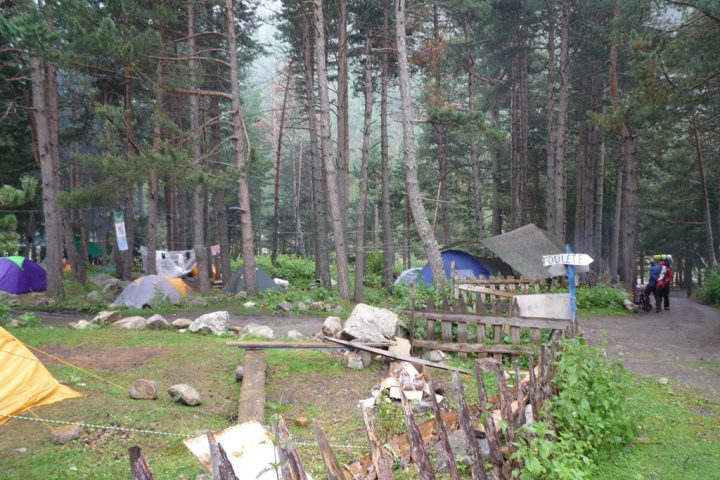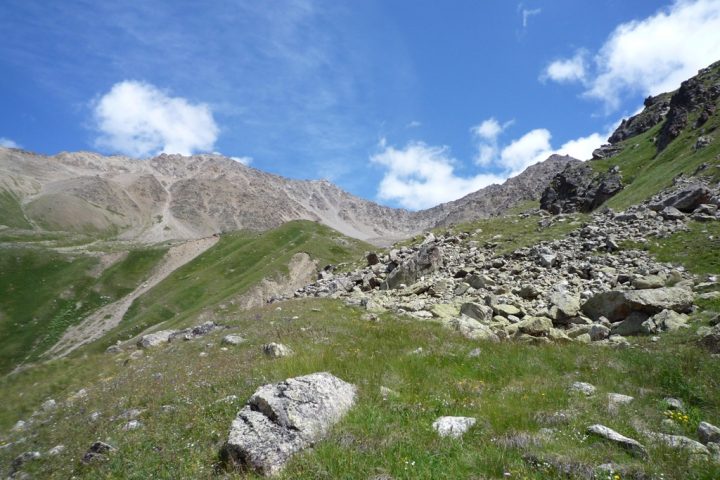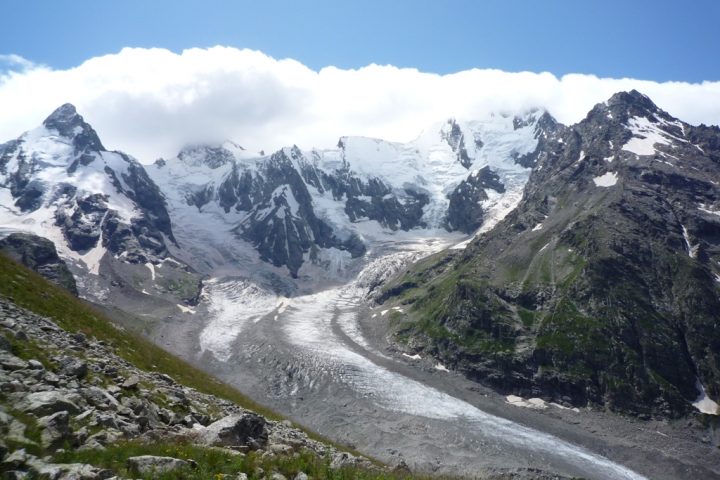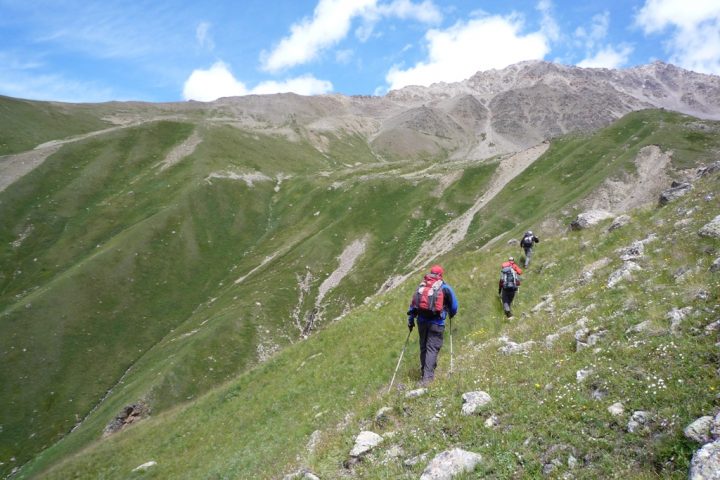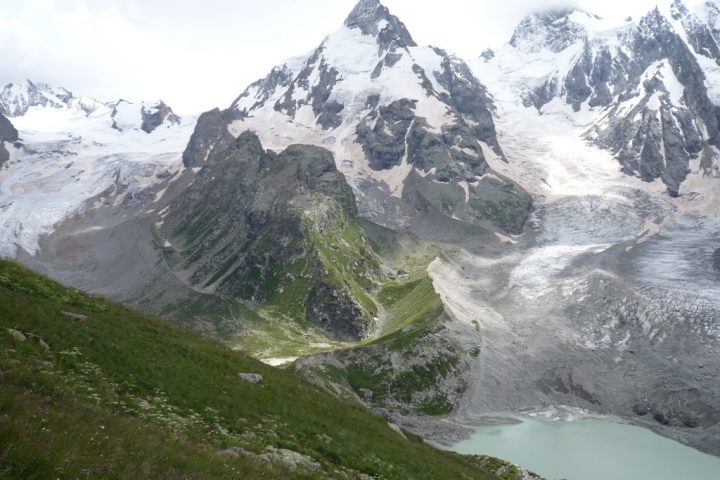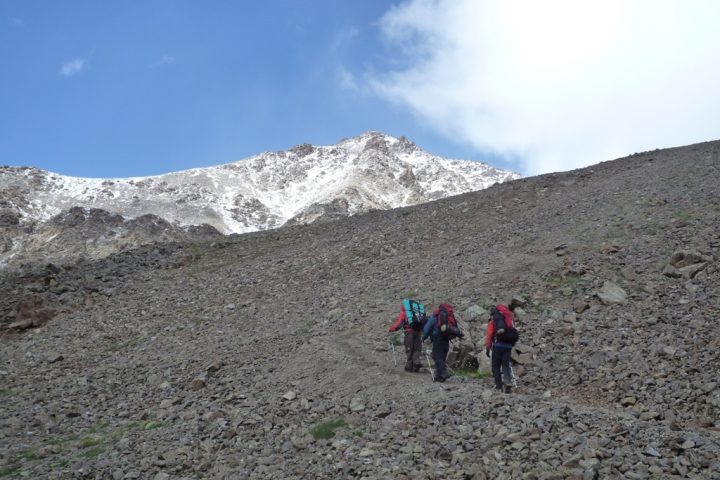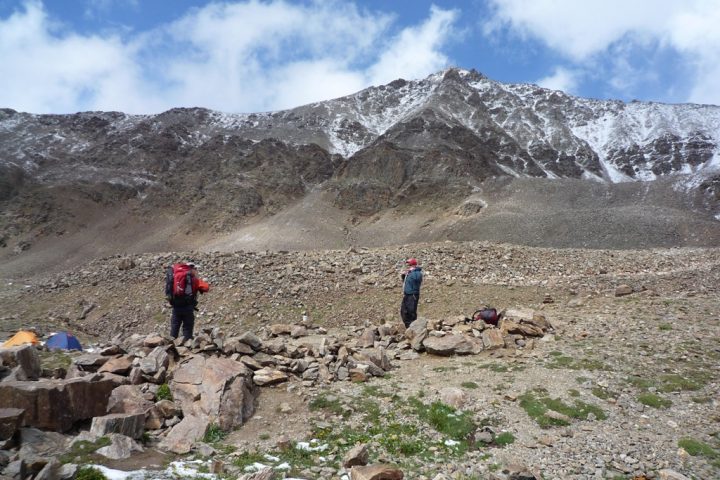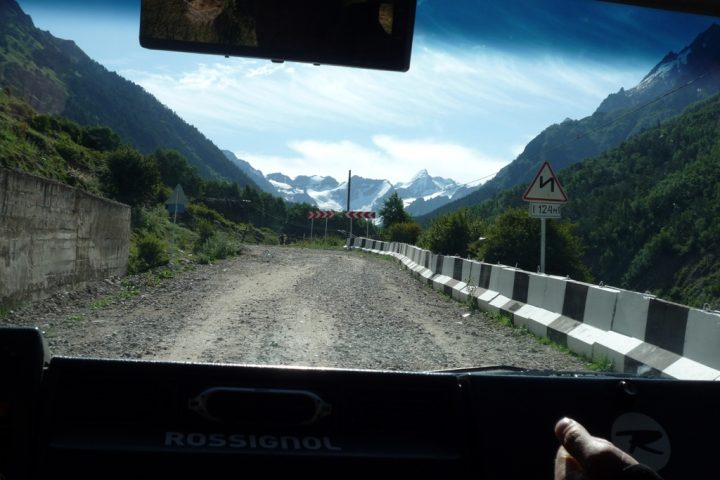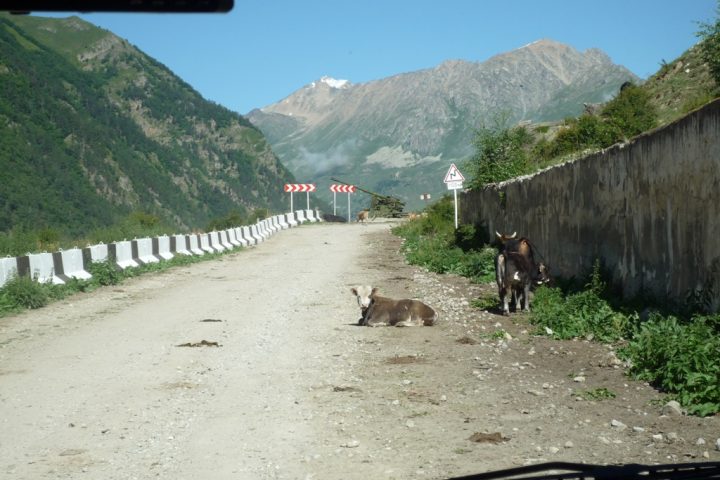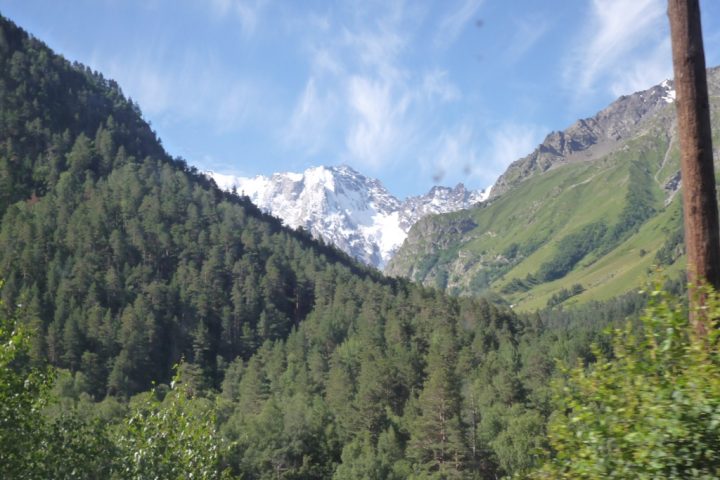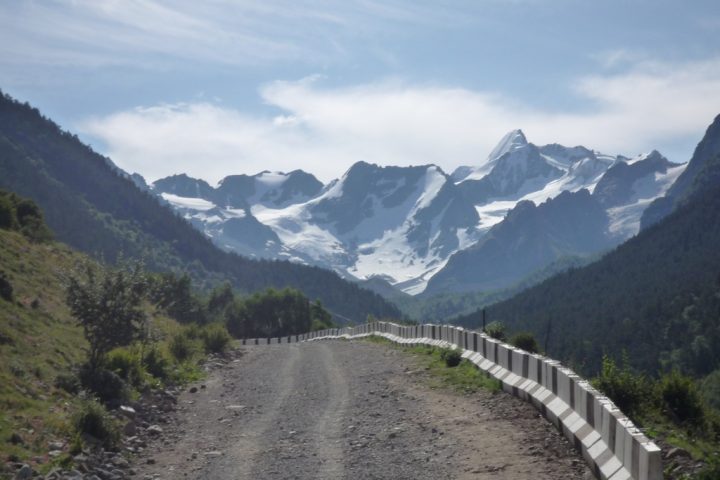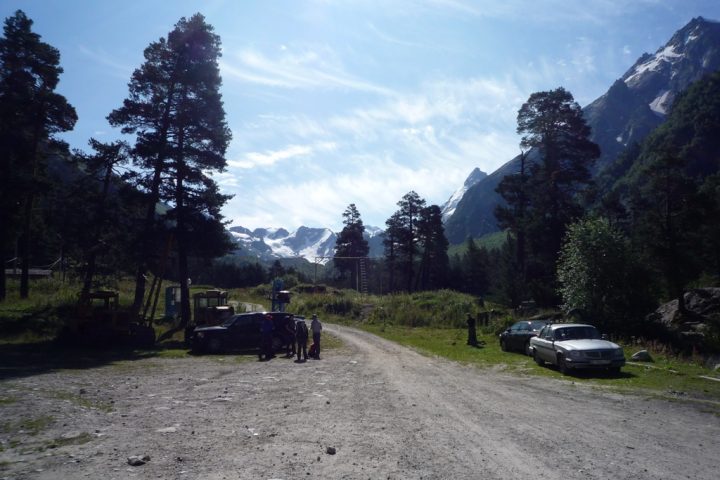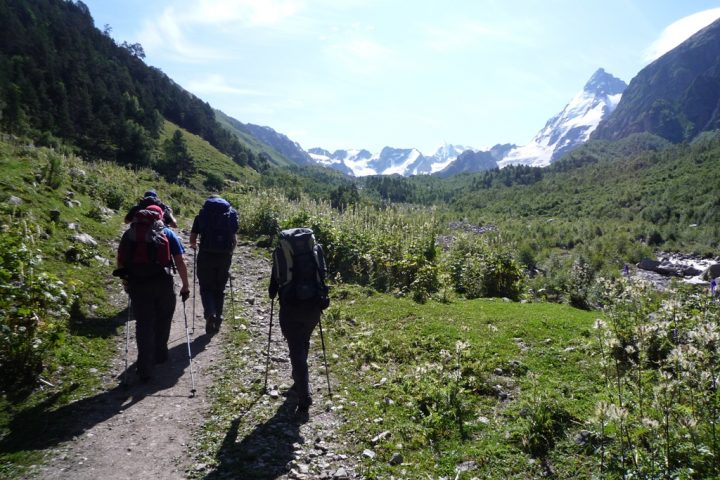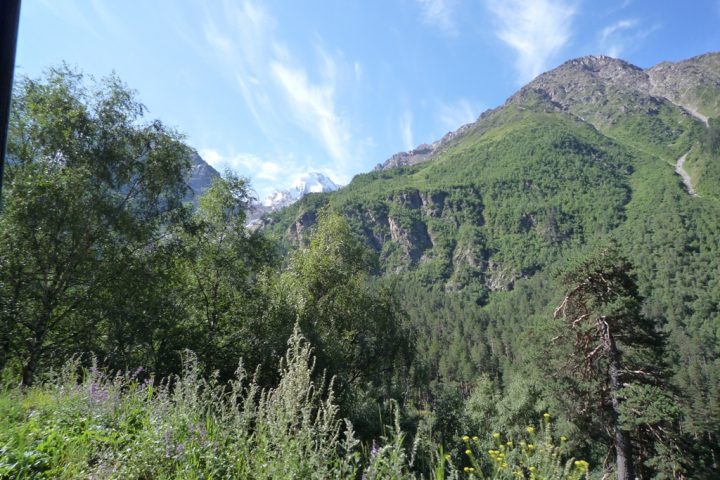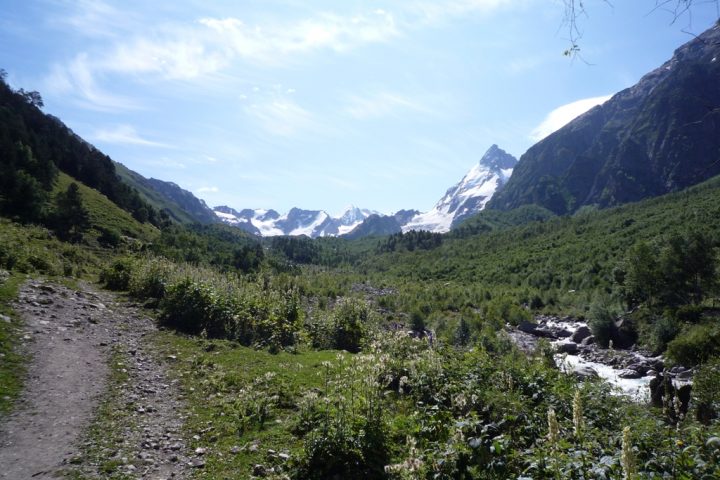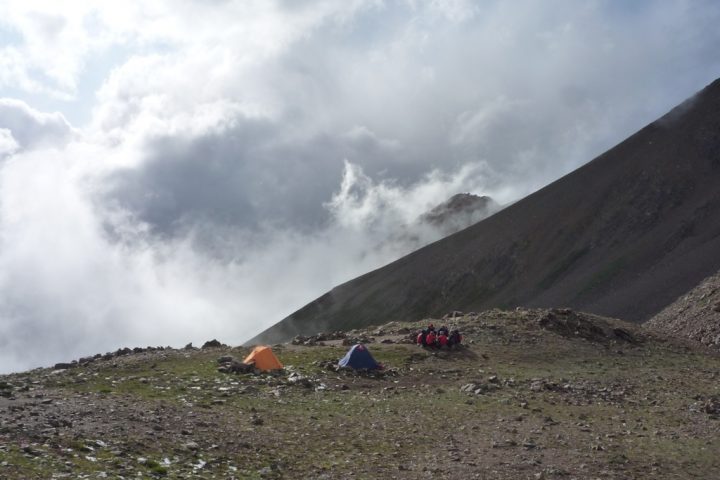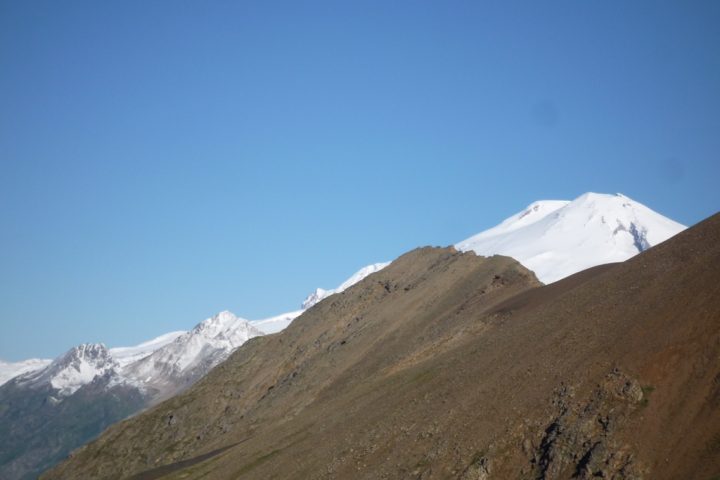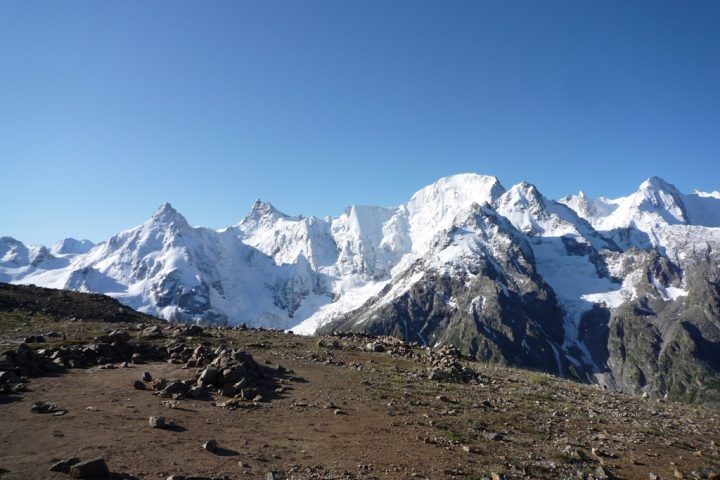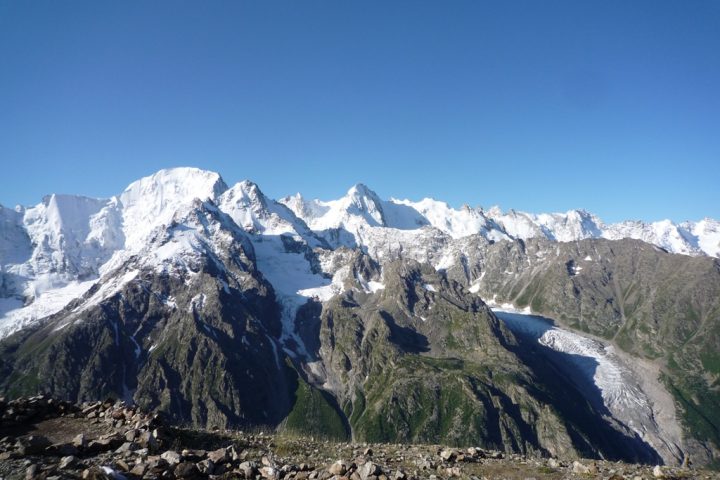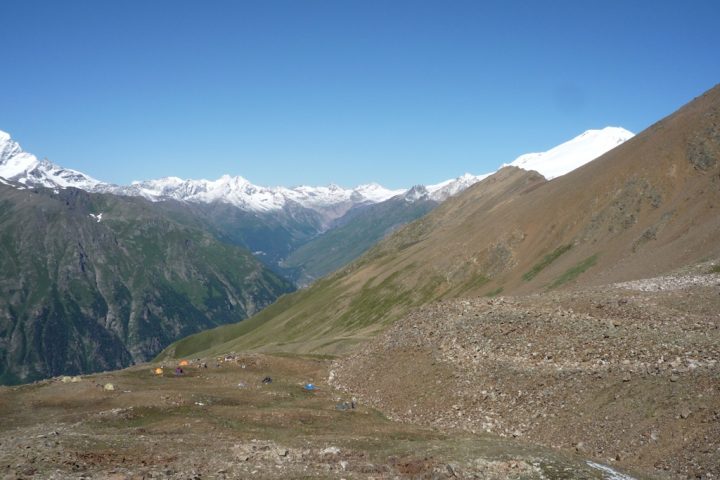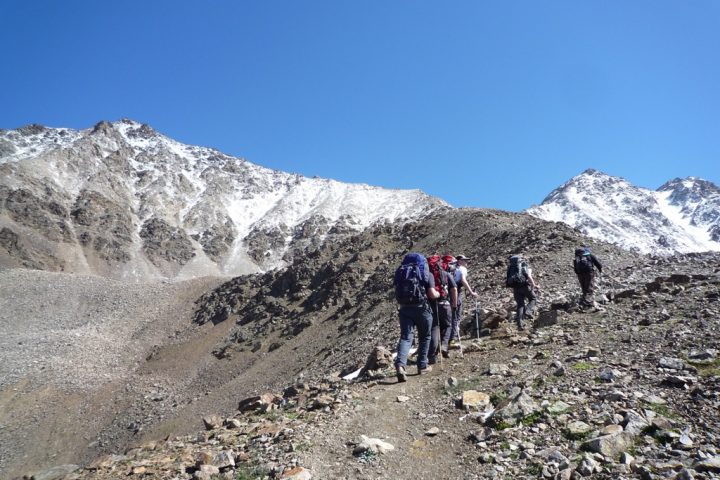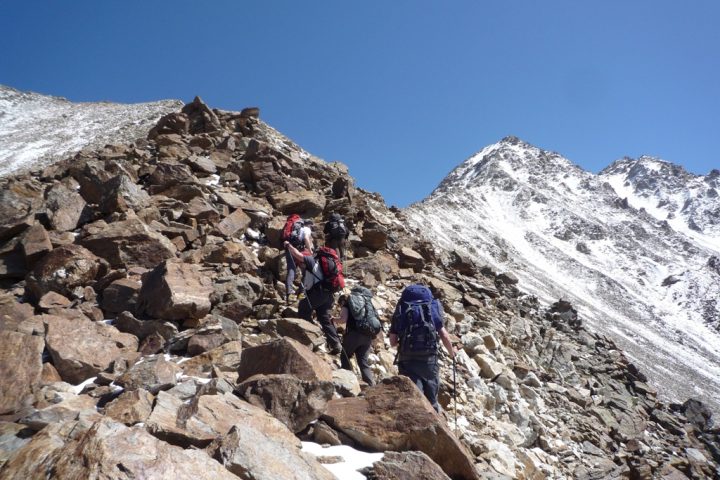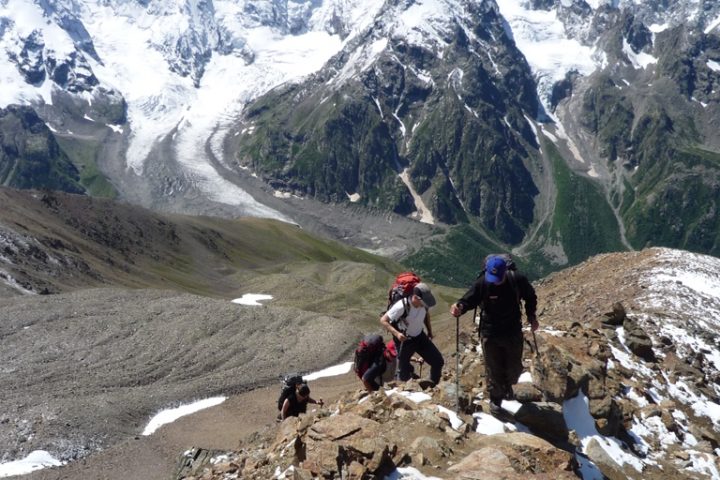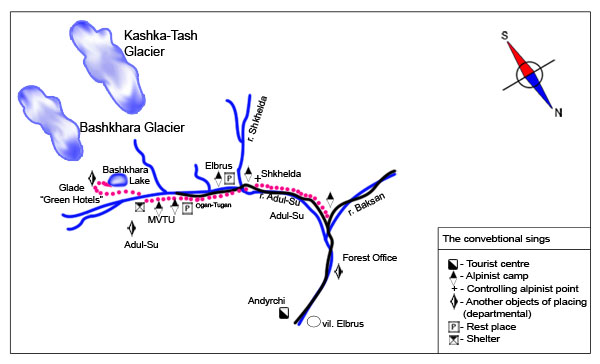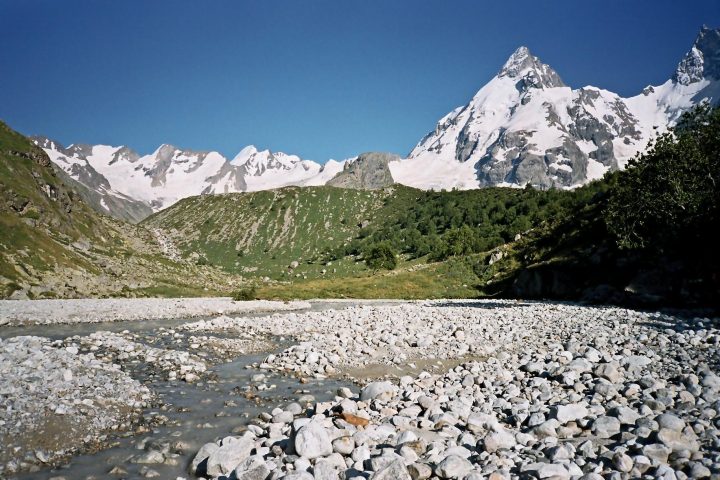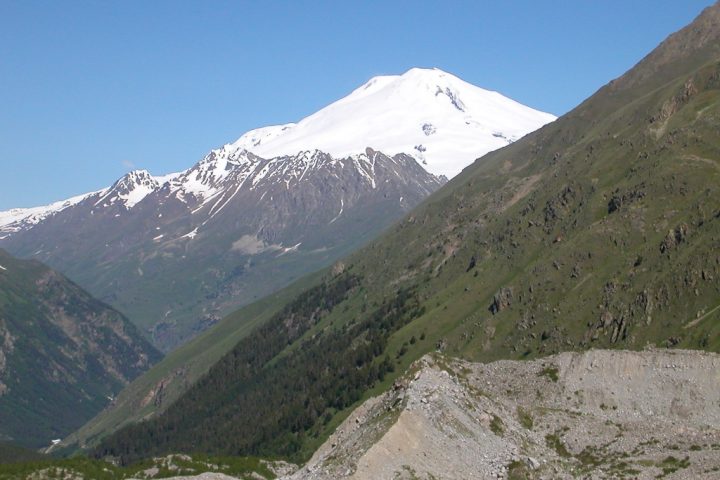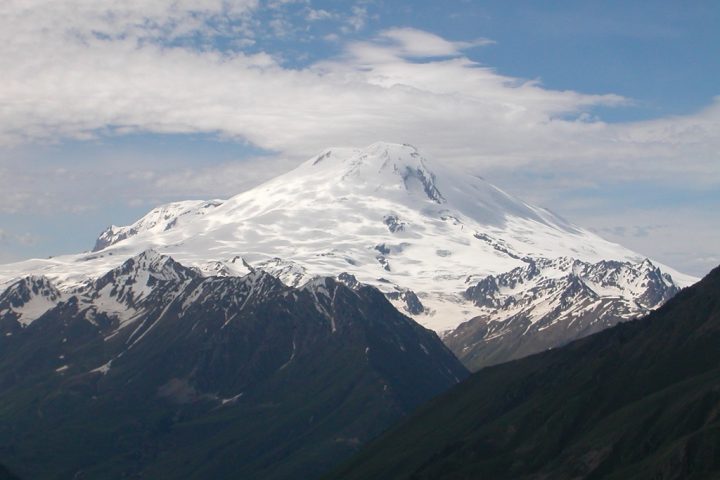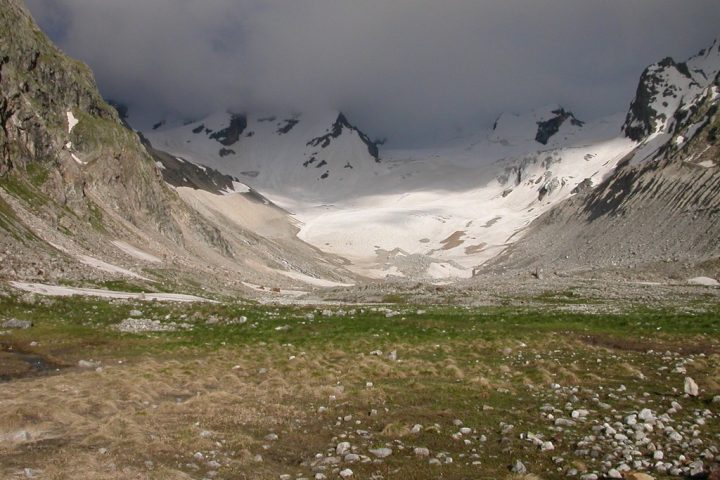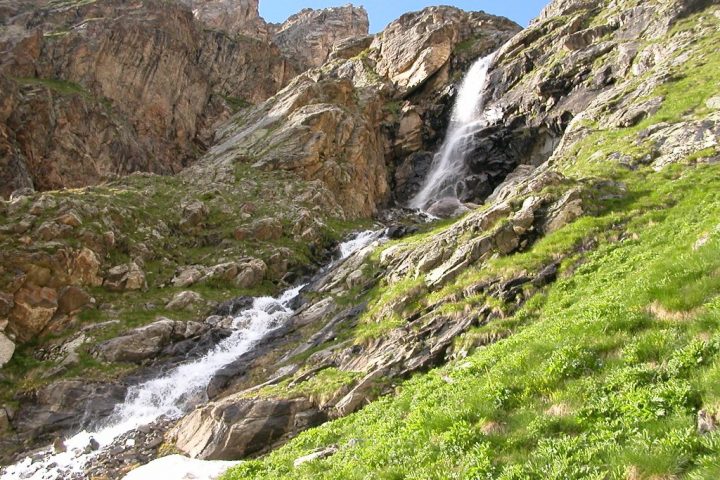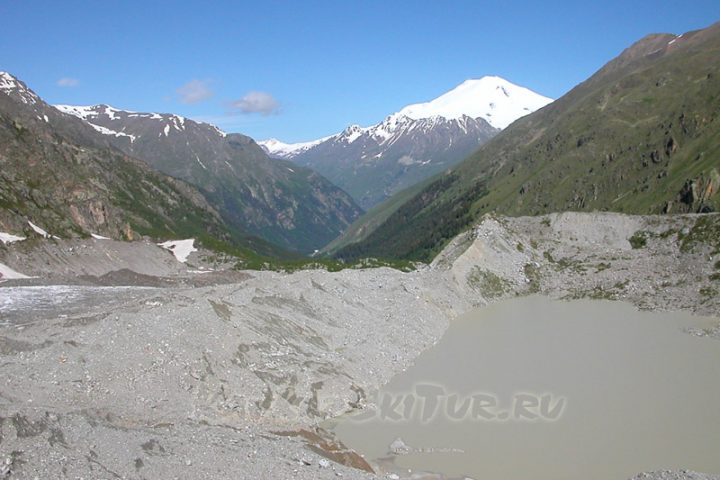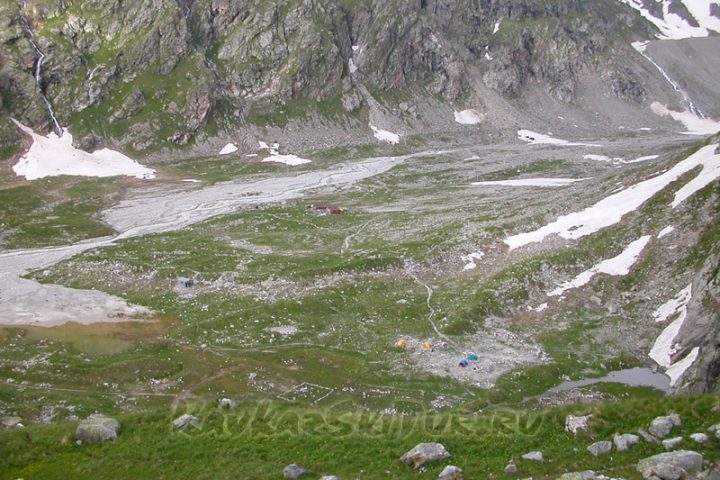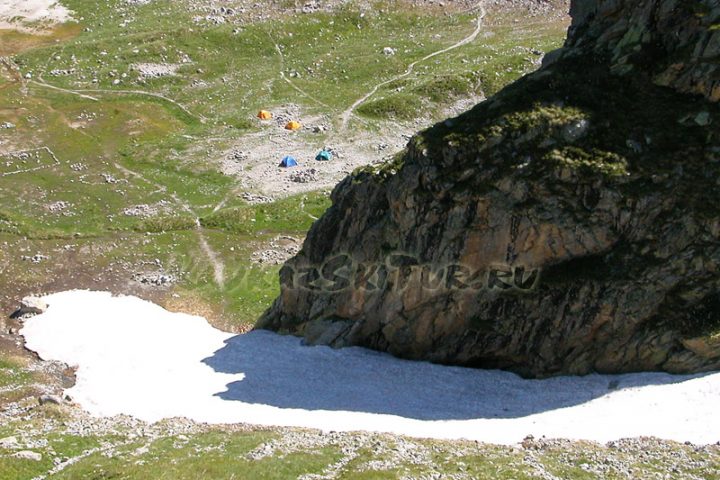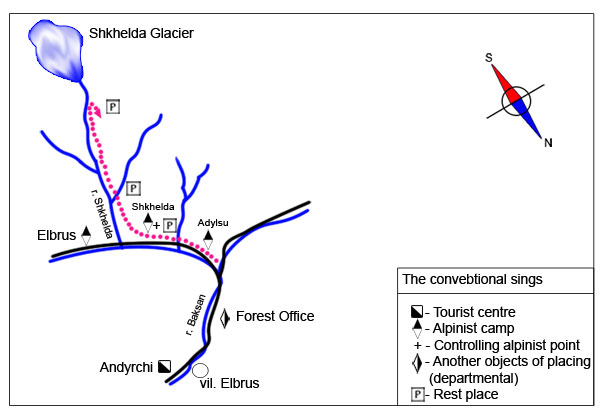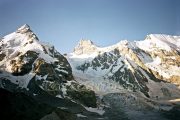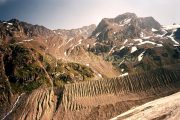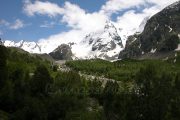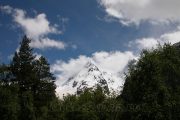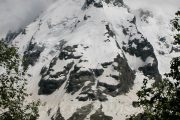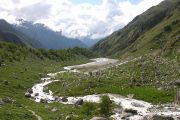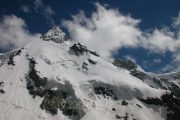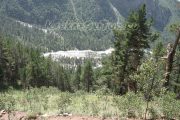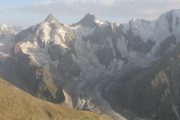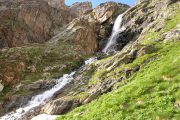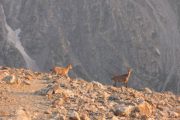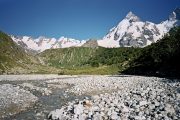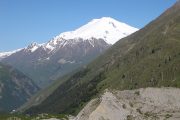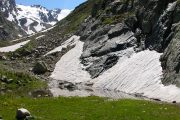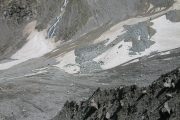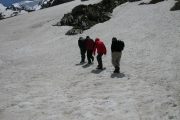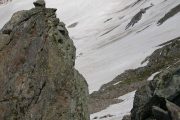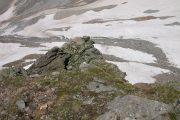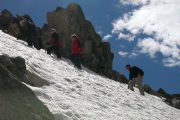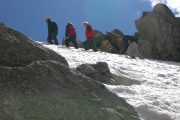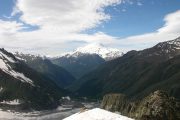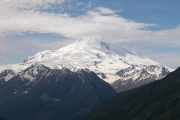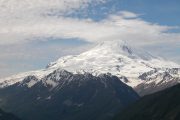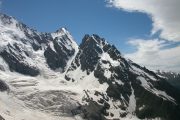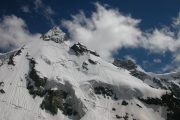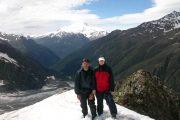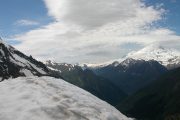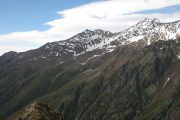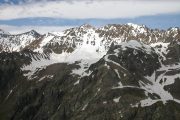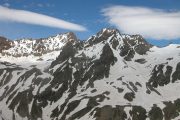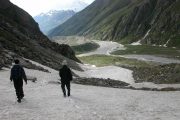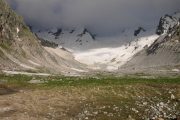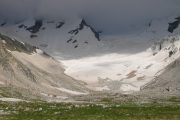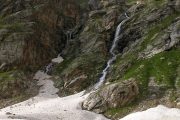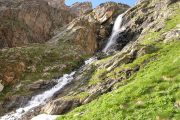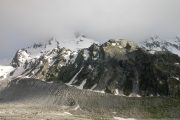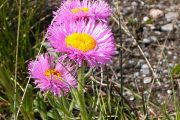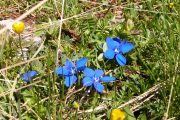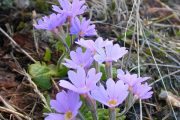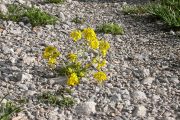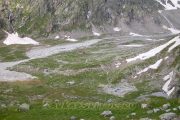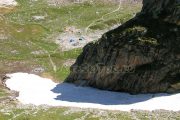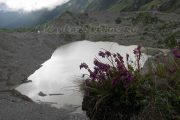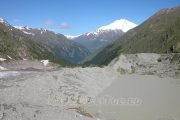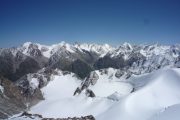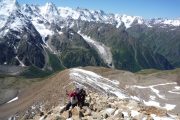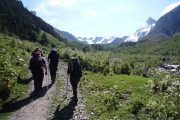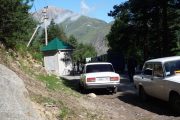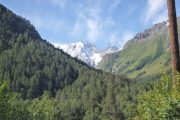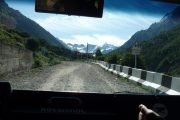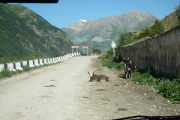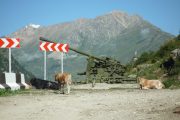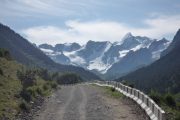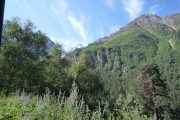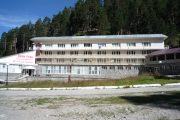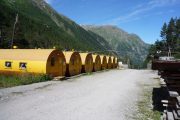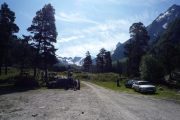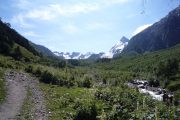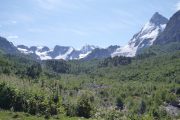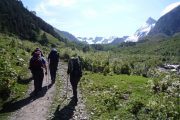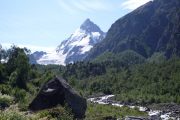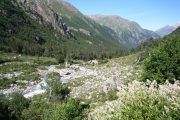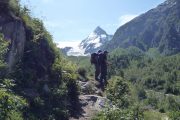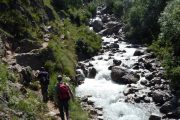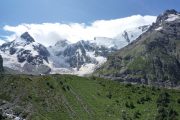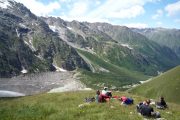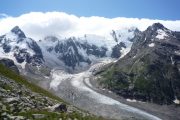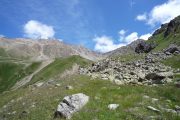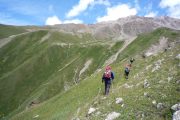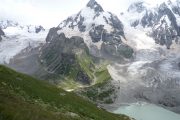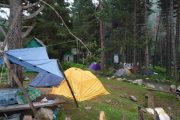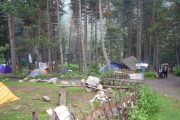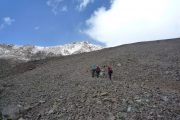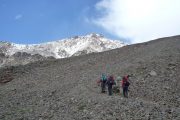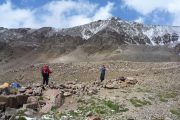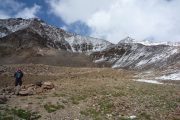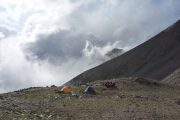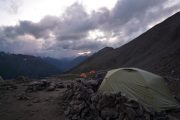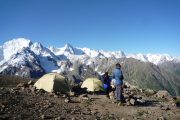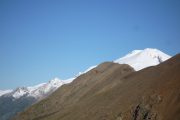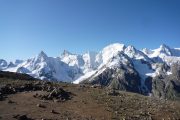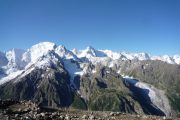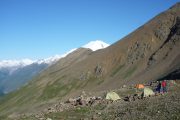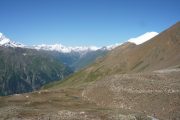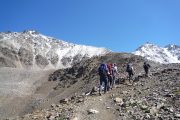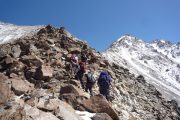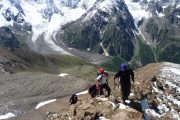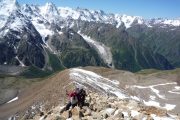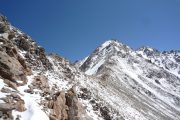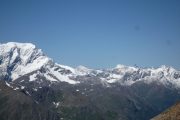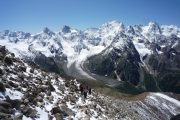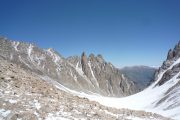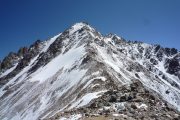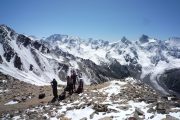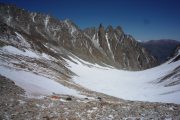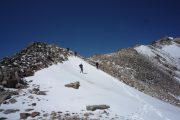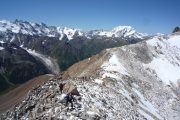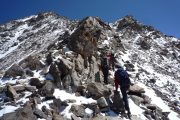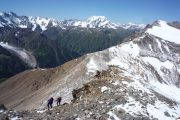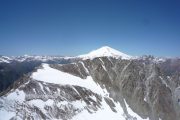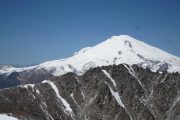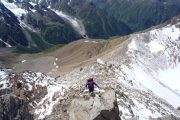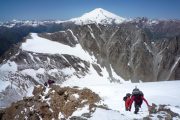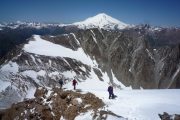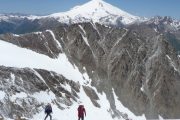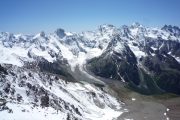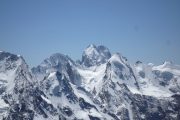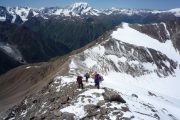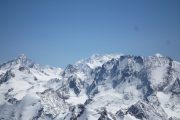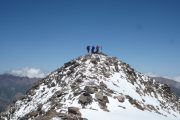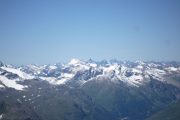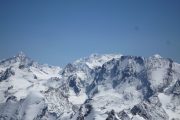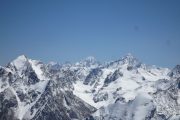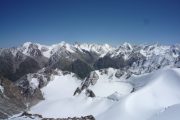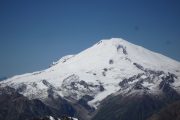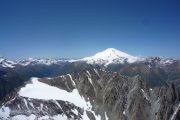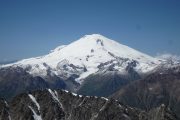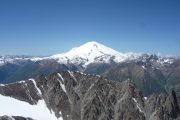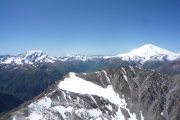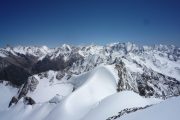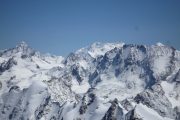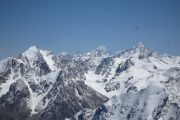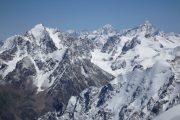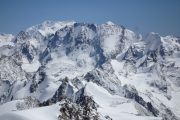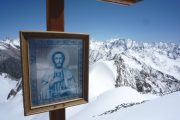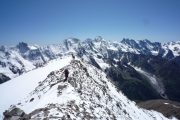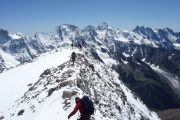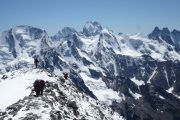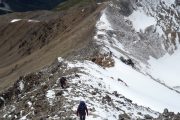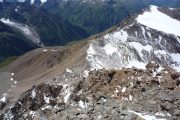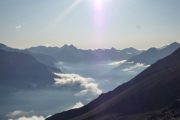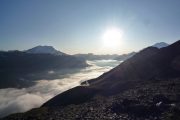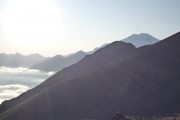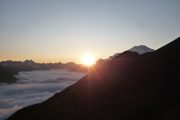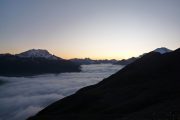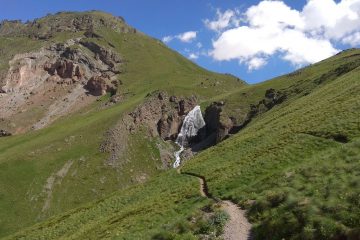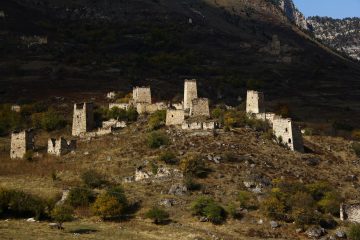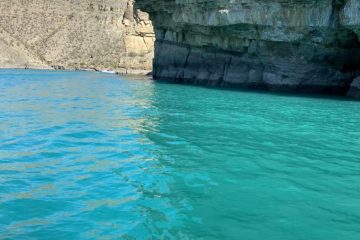Above the village of Elbrus, 120 kilometers from Nalchik, the nature of the Baksan Gorge changes dramatically. Both the road and the mouths of the rivers flowing into the Baksan are hidden by forests — pines, birches, willows. Everywhere there is dense undergrowth and juicy tall grass, thickets of raspberry and barberry, and higher up the slopes there are thickets of rhododendron.
Behind the village of Elbrus, a high-water right tributary, the Adyl-su River, flows into Baksan. And a little higher than the mouth of the Adyl-su, a short but stormy stream of the Shkhelda River flows into it, originating from the Shkheldinsky glacier.
Adyl-su and Shkhelda gorges are known far beyond the borders of our country to adherents of a courageous sport — mountaineering. Along these gorges there are paths to the peaks of the highest categories of difficulty — Shkhelda, Ushba, Shchurovsky peak, Chatyn-Tau, Free Spain peak, Bzhedukh. Peak Ushba (4,700 meters) is one of the most inaccessible in the Caucasus and the most popular among climbers.
There are several climbing camps here, one of the best is Shkhelda. In the post-war years, it turned from a tent camp into a stationary comfortable camp, which does not stop working all year round. There is also a rescue team check point for the entire area.
Along the gorge there is a wide highway connecting all the camps, it ends not far from the upper border of the forest, where the sports complex is located — the Bauman Moscow State Technical University camp. Unfortunately, this road did not decorate the gorge, nature lovers and tourists are more willing to use narrow paths along the river, among flowering meadows, away from the smell of engine oil and dust.
Adyl-su paves its roaring path among the rocks and screes, either bypassing its own sediments, or biting into the banks. The rumble of water, crushed and rushing about in heaps of stones, fills the gorge with an oscillating rhythm, creates a background from which at first you become deaf, and then you get used to it, as to something integral to this rearing environment, and you no longer notice so much that you hear the barely distinguishable sounds of life around — the melodic whistle of a dipper, a small bird, suddenly emerging from a foamy stream, the sound of crumbling pebbles, the rustle of grasses. The trail winds around the water itself, then climbs up the slope, passes the Dzhantugan camp and, unfortunately, goes onto a wide highway. But further than the giant camp, it reappears in a green cool forest, leads to icy singing streams and damp glades, and, finally, breaks out into the expanse of alpine meadows, to glaciers. At the end of the glacier, in a green clearing among streams and flowers, it is finally lost, and this clearing is called the «Green Hotel», although there is no hint of any buildings here. But here you constantly see tents, and even entire tent camps. From this bivouac, novice climbers go on test ascents, more experienced climbers go on difficult routes, and tourists go up to the passes.
DESCRIPTION
Day 1: Transfer to the Adyl-su gorge to the Dzhan-Tugan alpine camp - Bivouac
The Adylsu valley is one of the most beautiful in the Caucasus. A simple route passes through pine forests and alpine meadows, and introduces you to an interesting natural object — the Kashkatash glacier.
Above the village of Elbrus (1770 m), a road branches off from the Baksan highway to the valley of the Adylsu River, the right tributary of the Baksan. We go through the pine forest on the left bank of the river past the alpine camp «Adyl-su». After about an hour’s journey, we will reach the Shkhelda River. There is an alpine camp of the same name near the bridge. After Shkhelda we overcome a small rise, then we go down to the bridge on the right bank of the Adylsu. The forest is left behind. Now it will meet in separate sections. Alpine camp «Elbrus» is located on the right bank. From it, if you look towards the Baksan valley, you can see the Elbrus massif.
On the left bank of the Adylsu, above the gray moraine slope, the valley of the Kashkatash glacier opens. A swift stream flows out from under the glacier and rumbles. Below the greenish ice faults, a pine forest grows green on the moraine, and above the glacier — the sugarloaf of the Bzhedukh peak. A spectacle of amazing beauty.
A two-hour walk from the village of Elbrus, on a wooded glade, under the protection of the spurs of the Adylsu ridge, there is an alpine camp «Dzhan-Tugan». Below the camp, by the river, there is a mineral spring. We set up camp.
After lunch and rest, we can go to the VCSPS pass 3000 m without backpacks and return down to the camp.
Day 2: We continue our way to meadow Green Hotel (2400m).
In the middle of the glade stands the «Green Hotel» — a climbing hut (2400 m). It is 1.5-2 hours from the alpine camp «Dzhan-Tugan» to it. Here you can choose a camping for the night.
In the evening you can climb the crest of the Bashkara moraine and admire the sunset. Under the moraine, near the glacier, lies a beautiful lake. Below, behind the already darkening Adylsu valley, Elbrus burns in the last reflections of the sun, from below, filling the bottom of the valley, a white fog creeps. In the upper reaches of the valley above the Dzhankuat glacier, snowy peaks are blazing. You can go to the Dzhankuat glacier. It’s no more than 20 minutes away. The glacier is receding slowly, so its tongue is made of living ice.
Day 3: On the way back, we can visit the Shkhelda gorge along the Shkhelda river.
Having reached alp camp «Shkhelda», the camp should be bypassed on the left, along the way we go out onto the path to the Shkhelda gorge. Among the trees, a snowy peak with black pointed rocky needles appears and disappears — the peak Caucasus. Right along the way in the south, the gorge is occupied by the majestic Shkhelda massif — a rock-ice wall with several peaks on it. The trail goes along the left side of the gorge above the river Shkhelda. After 3 km from alp camp «Shkhelda» after crossing a large couloir, the trail forks. Then we go along the left path, which after 0.5 km leads to the blockages of the final moraine of the retreating glacier. Here is the end of the route, the height is 2250 m. The tongue of the Shkhelda glacier is clearly visible ahead, the length of which is 9 km, and the area is 8 km square, and in the depths of its valley — the rocky towers of Shkheldytau. It will take up to 1.5 hours to return to the road.
*The tour can be realized with a group from 4 pax.
Tour price includes:
tents and camping for 2 nights (delivery and setting)
all food in camp: breakfasts and dinners, lunch packages
Qualified guide-instructor;
Trekking pole rental;
all program transport services;
transfers (to/from city or airport).
Additional costs:
personal equipment rental.
Trekking tour does not require exceptional physical fitness, just good health is enough. From the equipment you also do not need any specialized things, here is a short list of what you need:
Sleeping bag and mat. Comfortable clothing for movement, preferably with covered arms and legs, for hiking. Warm clothes, the temperature in the evening at these altitudes can drop to zero degrees even in summer (usually around +10 in the evening, but it can be humid). Raincoat, or waterproof layer of clothing, in case of rain. A cap, (can be buff, or another headdress), can be with a visor to better protect your face from the sun. Sunglasses. Sunscreen. A middle backpack (for clothes, water and food on a hike). Headlamp. Trekking poles or regular ski poles (can be rented from us).
Full list of equipment and clothes please see in a tab.
| PRICE | 20’000 rubles per person | |||||
| DEPARTURE TIME | any day by booking | |||||
| DURATION | 2 days / 1 night | |||||
| AMOUNT IN THE GROUP | from 4 pax | |||||
| INCLUDED IN THE PRICE |
|
|||||
| ADDITIONALLY PAID |
|
|||||
| You must have all gear enumerated in equipment list. Important to know! If weather conditions are unfavorable for the tour, then changes to the planned route are possible, including the day and time of departure. |
||||||
Booking
List of personal trekking equipment
Clothes and shoes
Jacket, windproof coat, light.
Lightweight shirt with long sleeves (protects against burning of the arms and neck)
T-shirt
Hiking pants, light
Cap / panama hat
Socks
Flip flops
Hat, gloves
Waterproof clothing and/or raincoat
baseball cap for trekking (with protective brim covering the neck from the sun).
Fleece cap.
Balaclava
Thermal underwear.
Fleece 2 pcs (thin and thicker)
Fleece gloves.
Trekking socks (medium and thick) 2-3 pairs.
Equipment
Sleeping bag
Sleeping mat
Trekking telescopic poles (rental included)
Trekking boots
Jacket Gore-Tex or any other membrane
Pants Gore-Tex or any other membrane
Alpine sunglasses (protection 3-4)
Backpack 60 l.
Thermos 0.5-1 l.
Safety & Personal Care
Sunglasses
Toilet paper
Shoe dryers
Sunscreen and lipstick (Prot 50).
Individual first aid kit. Mandatory: elastic bandage, plaster.
Personal care products
Plastic bottle 0.5 l (for drinking water on the route)
Mug, spoon, plate, knife (for caming in the mountains, for tea a non-breakable mug)
Torch
Backpack for walking (20-25 liters). In the backpack — personal belongings and products for lunch, which are issued by the instructor (400-600 gr)
*Equipment can be rented on the spot for an additional fee.
| SERVICES | |
| Transfer airport (city) Nalchik/Minvody — airport or city | |
| Tents and camping 2 nights | |
| Qualified guide-instructor | |
| Trekking pole rental | |
| Intra-route transport services | |
| Resort fees, Elbrus National Park, Visa support | |
| Breakfast, lunch bags, dinners | |
| Additional personal equipment | |
| COST | 20 000 Rubles |


 +7 928 691 44 05
+7 928 691 44 05 
 Russia, KBR, city Nalchik
Russia, KBR, city Nalchik




